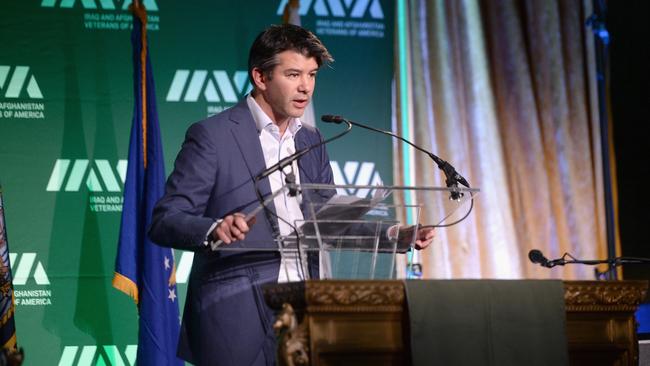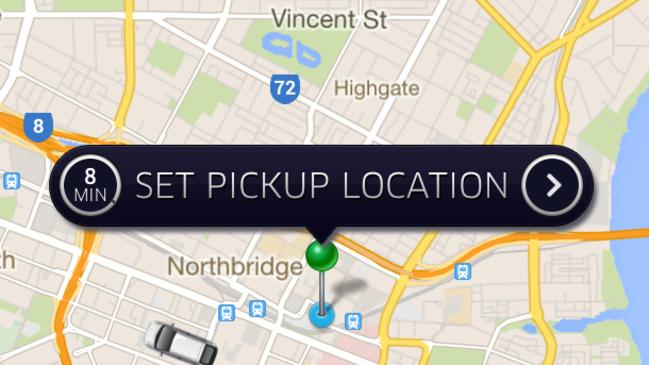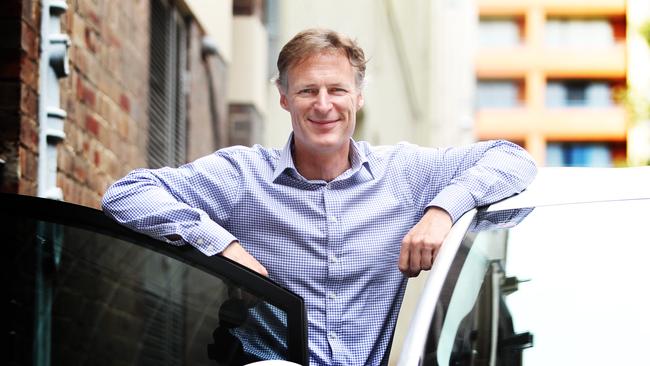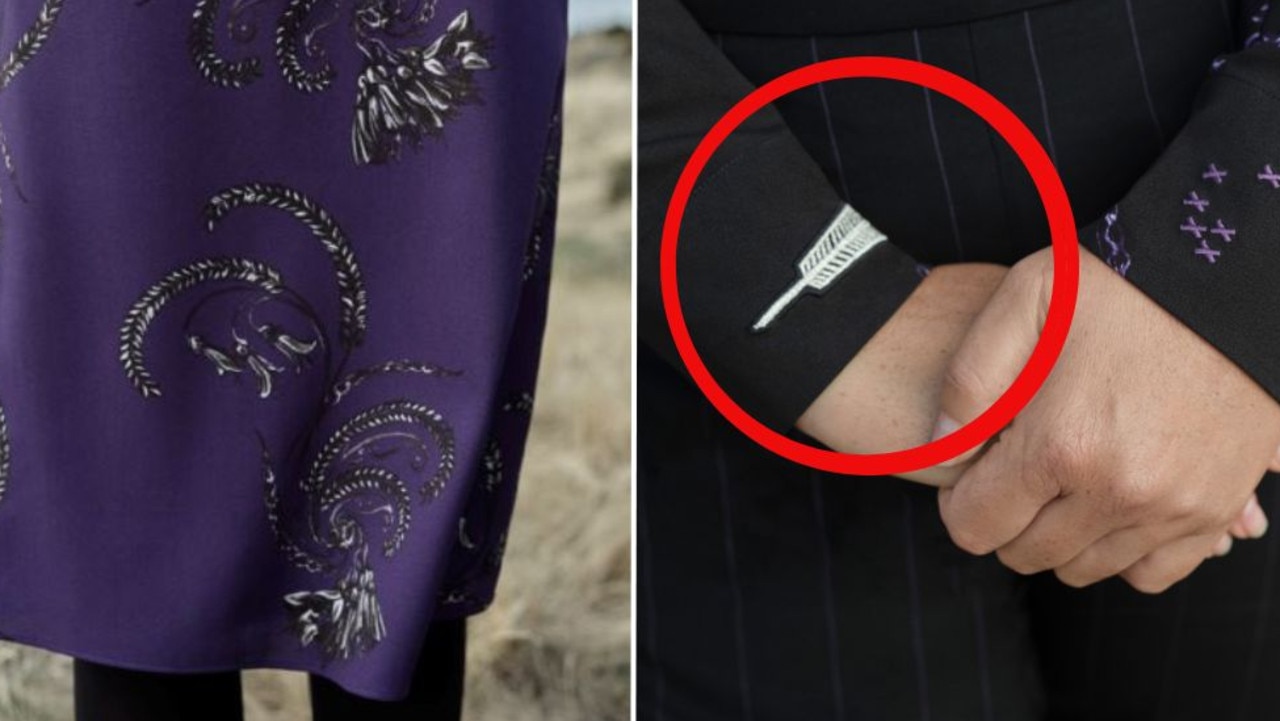Uber’s latest controversy: What’s the deal?
FOR a while there it looked like Uber was going to take over the world. But now it’s in the headlines for all the wrong reasons.
POPULAR ride-sharing app Uber has been in the headlines this week, for all the wrong reasons. But what actually happened?
Put simply, it hasn’t been a great couple of months for the business. From horror stories of sexual assaults on passengers, to accusations of sexism within the company — and now this latest incident.
Earlier this week, it was revealed that senior Uber executive Emil Michael had made remarks at a private dinner suggesting the company should hire a team of “opposition researchers” to dig up dirt on media critics.
According to BuzzFeed’s Ben Smith, Mr Michael made the remarks believing them to be off-the-record.
“Over dinner, he outlined the notion of spending ‘a million dollars’ to hire four top opposition researchers and four journalists,” he wrote. “That team could, he said, help Uber fight back against the press — they’d look into ‘your personal lives, your families’, and give the media a taste of its own medicine.”

In particular, he referred to high-profile tech journalist Sarah Lacy of the website Pando, proposing to spread details of her personal life as payback for routinely criticising the company.
“Uber’s dangerous escalation of behaviour has just had its whistleblower moment, and tellingly, the whistleblower wasn’t a staffer with a conscience, it was an executive boasting about the proposed plan,” Ms Lacy wrote after hearing the news.
“It’s gone so far, that there are those in the company who don’t even realise this is something you try to cover up. It’s like a five-year-old pretending to be Frank Underwood. Only one with billions of dollars of assets at his disposal.”
Mr Michael quickly apologised in series of tweets, saying the comments didn’t reflect the company’s views, but by that stage it was too late — the media storm had begun.
@paulcarr I agree and I unconditionally apologize for my comments. They were plain wrong and I feel terrible about them.
— Emil Michael (@emilmichael) November 18, 2014@sarahcuda I would like to apologize to you directly. My comments were wrong and I deeply regret them.
— Emil Michael (@emilmichael) November 18, 2014@sarahcuda Neither me nor my company would ever engage in such activities. Again, I apologize.
— Emil Michael (@emilmichael) November 18, 2014Not long after, Uber CEO Travis Kalanick issued his own apology of sorts:
1/ Emil's comments at the recent dinner party were terrible and do not represent the company.
— travis kalanick (@travisk) November 18, 20142/ His remarks showed a lack of leadership, a lack of humanity, and a departure from our values and ideals
— travis kalanick (@travisk) November 18, 20143/ His duties here at Uber do not involve communications strategy or plans and are not representative in any way of the company approach
— travis kalanick (@travisk) November 18, 2014High-profile Uber investor Ashton Kutcher then weighed in, perhaps unwisely.
What is so wrong about digging up dirt on shady journalist? @pando @TechCrunch @Uber
— ashton kutcher (@aplusk) November 19, 2014To be clear I speak for my self not @Uber
— ashton kutcher (@aplusk) November 19, 2014This should be fun... Here comes the part where journalist explain why they should be exempt from ridicule and judgement and probing...
— ashton kutcher (@aplusk) November 19, 2014U r all right and I'm on the wrong side of this ultimately. I just wish journalists were held to the same standards as public figures.
— ashton kutcher (@aplusk) November 19, 2014However as Daily Dotpoints out, Kutcher might not be the best person to comment on media ethics given his website Aplus.com has plagiarised numerous articles from sites like BuzzFeed and Huffington Post.
Uber, which is by far the biggest player in the on-demand ride-sharing market, has millions of users and an operates in 46 countries. It currently has more than $A1.16 billion in funding for close to $A20 billion in valuation, and is reportedly looking to raise another $A1.16 billion.
Earlier this year, reports emerged of a dirty tricks campaign waged by Uber against Lyft, its key competitor in the US. Both companies were found to be ordering and cancelling thousands of taxi bookings in order to disrupt each other’s service.
And it wasn’t the first time. Uber had previously been accused of foul play by rival black-car service Gett. The New York company claimed Uber had attempted to sabotage its business using similar booking and cancelling antics.

In Australia, various state governments have openly called Uber’s ride-sharing offshoot, UberX, illegal and vowed to fine any drivers caught. State transportation authorities including NSW’s Roads and Martitime Services have been conducting clandestine surveillance on drivers.
For its part, Uber has vowed to pay any fines issued, but has called on an overhaul of what it describes as a “regulatory grey area”. Currently, taxi drivers require a special license to operate, and must be affiliated with a network such as Taxis Combined or Silver Service.
UberX, in comparison, allows anyone over 24 with a driving licence, no criminal record and a four-door car to offer rides to passengers.
The powerful taxi industry lobby argues it creates unfair competition and allows drivers to operate outside the regulatory framework, but Uber claims it provides a better service.
“There are great examples in San Francisco where new licences have been created and embedded in the regulatory framework to level the playing field and allow drivers some certainty,” Niall Wass, Uber’s senior vice president for Europe, Middle East, Africa and Asia Pacific told The Australianlast month.

“This is being considered, debated and embraced in more forward-looking cities around the world. That’s the kind of thing that should happen here. The transport ministers should look at it and say it’s good for everyone and let’s get it done.”
The latest scandal has sparked a #DeleteUber Twitter campaign. While it probably won't deal a killer blow to the hugely popular app, when articles with titles like these begin popping up — ‘How to Uninstall Uber’, ‘Seven Reasons You May Want to Delete Your Uber App’, ‘Why You Should Delete Uber, and What to Use Instead’, ‘Dismantling Tech’s Sexist Culture Isn’t Easy, But Deleting Uber Sure Is’ — it’s clear there's a problem.
Public perception won’t be helped by news that the company is officially investigating whether one of its general managers violated its privacy policies by snooping on the whereabouts of a journalist.
The probe stems from allegations that Josh Mohrer, GM of Uber’s New York office, used a company tracking tool called ‘God View’ to monitor the location of a BuzzFeed reporter earlier this month.
In a statement, Uber said access to the personal data of anyone using its car service is limited to “legitimate business purposes”. The San Francisco company said employees violating the rules may be disciplined or fired.
Uber Australia has been contacted for comment.



